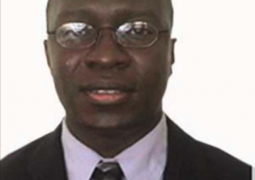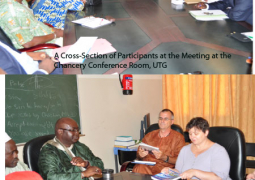
Just as chronic diseases require long term-treatment, a continuous struggle against the factors that constantly prevent the human being from perceiving the truths of existence and stand in the way of his growth and development must be grounded on a firm ideational basis and a comprehensive social organization. Only then will it be able to implement its goals over a period of time and guide human beings to its ultimate purpose-their liberation from self –alienation. Solutions whose efficacy does not transcend events limited in time and space will be unable to solve the problems of the human being. Islam represents the only system which is able to answer those problems because of the attention it pays to all phenomena.
For Muslims, the miraculousness of the Quran is a matter of religious belief; for scholars and researchers, it is a matter of scientific belief. The Quran possesses a remarkable comprehensiveness and richness, with respect to its worldview and scientific content, and its ability to guide the individual and society. There are still many matters contained in the Quran that call for investigation and await discovery by further research.
THE EXTRAORDINARY RICHNESS OF THE QURAN
The Quran represents the principal source of all researches concerning the Islamic school of thought. Moreover, in every age and every part of the world, it can serve as the basis for a developed and free society which enables all the hidden capacities and potentials of the human being to blossom in all their dimensions; it lays down a path to the ideal society and the government of God. More than fourteen centuries have passed since the revelation of the Quran. Throughout this period, mankind has undergone numerous changes, and passing through repeated stages of development and growth, it has attained a more comprehensive awareness of the mysteries of creation. Nonetheless, the Quran has at all times retained its proud and dignified presence on the stage of human history.
When this miracle first came into existence, at a time when the foundations of human thought had not fully developed, it served to prove categorically the messengerhood of the Prophet of Islam. In the present age, as the human being discovers in the treasure house of the Quran, more and more remarkable indications, commensurate with his own growth in perception, knowledge and civilization, the Quran still stands as a permanent historical miracle and a living universal proof for the veracity of the Seal of the Prophets. The increase in the volume of human knowledge and the opening up of new horizons of thought have given us the chance to benefit more fully from the Quran than past generations. If the Quran had been able to establish itself only during a certain segment of time and in a limited spatial environment, it would have not been able thus miraculously to advance together with time.
The reason for the eternal vitality and authenticity of the Quran is that it has always been a source for spiritual guidance and command in the face of the changing events of time. History bears witness that the emergence of the Seal of the Prophets and his mode of activity within society marked the beginning of a new stage in human thought and ratiocination and in the development and expansion of the will and independence of the human being. For in his growth to maturity, the human being now advanced in his investigations from the stage of mere observation to that of thought; an exact and profound examination of phenomena took the place of simplistic assumption.
All this is indicated by the fact that the human beings’ acceptance of true faith was no longer on the basis of miracles involving supranatural or extraordinary phenomena, as was the case with the mission of previous Prophets. Human beings turning to faith on the basis of knowledge and thought something to which the Quran repeatedly invites human beings-represents in itself the miracle wrought by the heavenly message of Islam. Reliance on sensory miracles would not have been compatible with the nature of the final Divine message and its aim of liberating the human being and fostering the growth of his intellect. God, therefore, prepared the human being in the course of many thousands of years to receive the final guidance.
Our investigations of the Quran can be of value only when we empty our minds of all pre-existing notions and attitudes, because fanatical convictions concerning the contents of the Quran will yield nothing but mental stagnation and immobility.
This is a pitfall that every alert and fair-minded researcher must seek to avoid. It is an undeniable reality that the Quran is too elevated a book to be the product of ideas held by a group of scholars.
It is even more impossible for it to have been produced by a single individual or to have been borrowed by him from other sources, particularly an individual who was unlettered, had not even studied, and had grown up in the degenerate environment of the Arabian peninsula at that time, an environment which was totally alien to science and philosophy. When we consider the system and program of action proposed by the Quran for the uplift of the human being and compare it with the laws and systems of the past, we realize that it borrowed nothing from them and bore no resemblance to them.
It represents an entirely new phenomenon, original and unprecedented in its fundamental nature, and among its lofty aims are the transformation of human societies and their restructuring on the basis of justice, equality, and freedom for the oppressed and deprived masses.
The Quran speaks in detail of the history of earlier Prophets and their communities, referring constantly to the events that occurred during their careers.
When we encounter the narratives contained in the Quran, the events that it relates, we are brought into direct contact with reality, in an unparalleled fashion. Every reference they contain, direct and indirect, acquaints us with the very substance of truth. It is, then totally impossible that the narratives of the Quran should have been borrowed from the Torah or the Gospels.
The Quran always presents the stories of the Prophets in a positive framework by changing and modifying them so as to purge them of unworthy excesses and elements contrary to pure monotheism, reason, and sound religious thinking. A copying would have resulted in mere imitation, and would have been entirely negative. Dr. Murice Bucaille, the French scholar, expresses himself as follows on this point: “In the West, Jews, Christians and Atheists are unanimous in stating (without a scrap of evidence, however) that Muhammad wrote the Quran or had it written as an imitation of the Bible. It is claimed that stories of religious history in the Quran resume Biblical stories.
This attitude is as thoughtless as saying that Jesus Himself duped His contemporaries by drawing inspiration from the Old Testament during His preaching: the whole of Mathew’s Gospel is based on this continuation of the Old Testament. What expert in exegesis would dream of depriving Jesus of his status as God’s envoy for this reason?
“The existence of such an enormous difference between the Biblical description and the data in the Quran concerning the Creation is worth underlining once again on account of the totally gratuitous accusations leveled against Muhammad since the beginnings of Islam to the effect that he copied the Biblical descriptions.
As far as the Creation is concerned, this accusation is totally unfounded. How could a man living fourteen hundred years ago have made corrections to the existing description to such an extent that he eliminated scientifically inaccurate material and, on his own initiative, made statements that science has been able to verify only in the present day? This hypothesis is completely untenable.
The description of the Creation given in the Quran is quite different from the one in the Bible.”
To be continued





